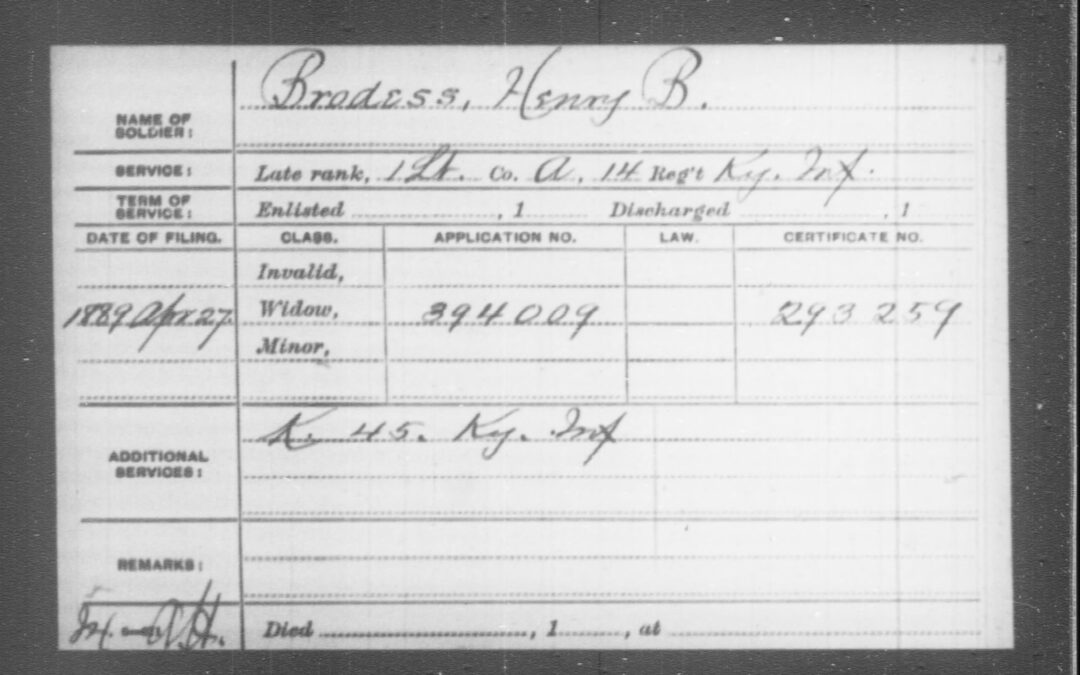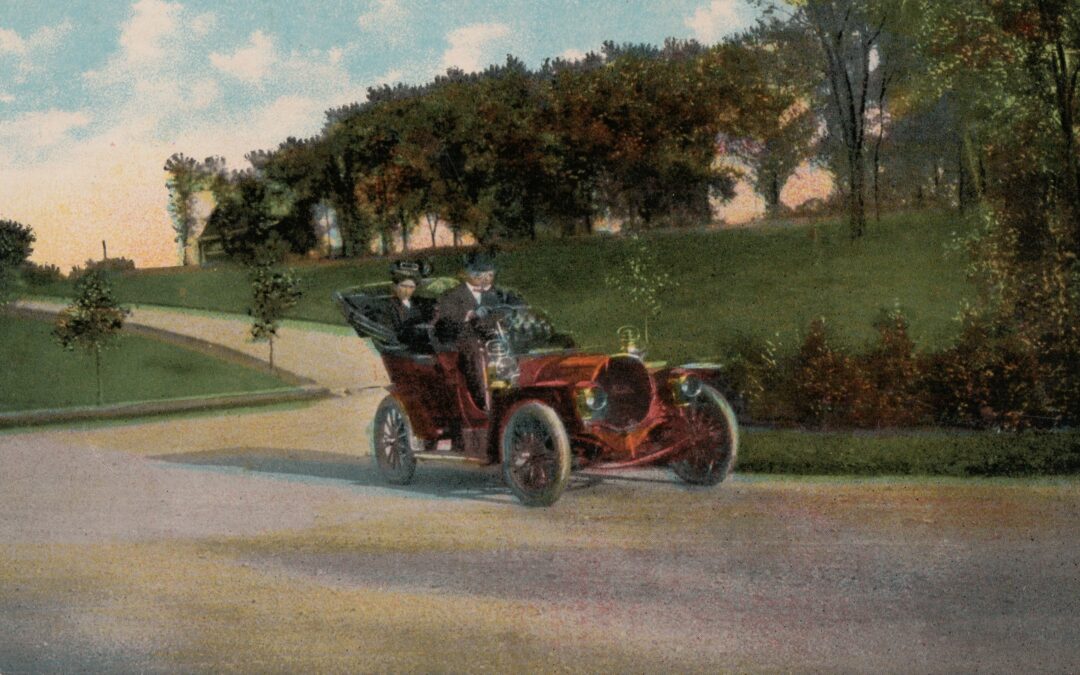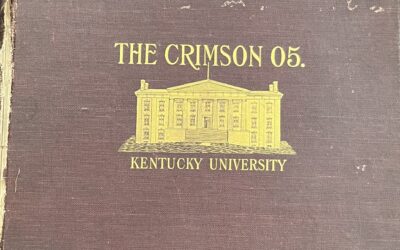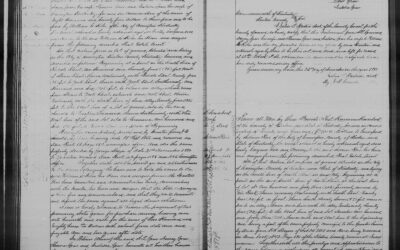Based on Kentucky’s religious past, it is a safe guess that most of our ancestors attended church at some point in their lives. Many of the churches kept better records than the local county clerk. Finding church records means looking in several places. In this post, we begin with the local situation and work our way beyond that.
This is part two of a two-part series, in the first part, Dr. Harrison discussed the genealogical value of these records.
Three Ideas for Locating Church Records
If you can place your investigation in a particular parish, and particular congregation, go to that church if it still exists, and ask to see the records during the period you are checking.
Sounds simple. You are then likely to be told: “Records? What records? I don’t know if we have any.”
Here you call on patience and tact. Encourage the person to remember that virtually all churches have some sort of records.
If you are fortunate, you will encounter either a secretary who has been at the church for forty-seven years and knows where everything is, or you may meet a minister with an interest in history, who has perhaps been using the local church records to prepare a history of the congregation.
On the other hand, there is the normal experience. Records for the past five or ten or even twenty years are readily available, but you want something from the 1840s?! You’ve got to be kidding.
So where do you look for the records?
Idea 1: Check with the Church
The church itself. Some rare churches will have their records in excellent shape, identified and in order and all in one place, maybe even dusted! (If you are allergic to dust, be sure to bring allergy pills.) More likely, the records will be scattered.
Some may be in filing cabinets in either the minister’s or the secretary’s office. Others may be in the church library, no matter how small that might be. Others might be stacked or boxed up in an attic, an infrequently used room, or a storage cabinet in the room where the church board (or vestry, or session, whatever the local lay organization is called) meets.
You may or may not be allowed to search, you may or may not be given assistance in locating the records. Be patient. If you know a member of the congregation who would be willing to help, bring them along. A minister is much more likely to say, “Help yourself, search the place,” if someone known to the minister is doing the searching.
Idea 2: Less Obvious Storage Locations
Past church leaders may have sought preservation or safe-keeping. Local church records, still in existence, are likely to be in one of the following places:
- A local bank vault. Some churches have taken the wise precaution of placing old records in a bank vault so as to protect them against fire or vandalism or theft. Access to these resources might be difficult. Again, the good graces of a member of the church can facilitate matters.
- Denominational or state historical society or archive. Past church leaders may have sought preservation or safe-keeping.
- Public library. It sometimes is the case that local church records have been turned over to the local public library. More will be said in a later section.
Idea 3: Past Minister’s or Member’s House
Smaller churches may rely on less secure means of storing the records. Depending on the denomination, there may be record keeping traditions.
Members
It is entirely possible that church records will be in the hands of one or even several members of the congregation because someone in their family held a position of responsibility at one time or another.
This is true also when there has been conflict within the congregation (as has happened with almost every church at some time or another, and with some churches every leap year at least!) Someone has taken the records home to keep someone else from having access to them for a variety of reasons. Now, 20 or 50 or 125 years later, they are still in that trunk in the attic, or some such place.
Locating records in this fashion requires as much luck as anything, one of the few places where luck comes close to equaling hard work in value. However, if the records are not in the church, and the people working at the church do not know where they are, a conversation with a few elderly members could be most rewarding. If such records are found, the minister should be informed and encouraged to place them under more regular care.
Minister
In many churches, some records, especially of baptisms, funerals, and marriages, are kept by the minister, and taken along when the minister moves on to another position. There are churches and occasions when virtually all records stay with the minister.
In any case, when the records at the church are incomplete (or when they have been destroyed in a fire or other catastrophe), you should check on the records held by the minister.
Baptists, Disciples, Christian Churches and Churches of Christ, and in earlier years, Methodists, regularly expected the minister to keep and maintain in his or her possession the records of the church. Other denominations fit in this category.
Finding the Ministers with the Records
Now, how do you find out who the minister was when your person was around, in most cases, several ministers? If you are dealing with this century, you might be able to have a reasonably complete list of ministers available at the church, with someone there able to tell you the whereabouts of ministers still alive.
But what if you are having difficulty finding out who the minister was or ministers were? One possibility would be a history of the local congregation, or of the community or county. These local histories have to be approached with some care, for they are notoriously inaccurate, although some are not only accurate but are bed-rock history, solid stuff to be enjoyed and appreciated.
Other places to check for who the ministers were during particular periods would be local newspaper files. Some denominations have yearbooks going back many years, certainly covering this century, which would give information on every church for a given year, including ministers. These will be found sometimes in local churches, more often in denominational historical societies and seminaries and colleges.
Another resource would be denominational magazines and journals, if they have been indexed. If they have not been indexed, you will really have to be desperate or blessed with patience and extraordinary amounts of time to go through page by page looking for references to your church.
Denominational histories, with indexes, might also be of value in locating the names of ministers of particular churches at particular times.
Finding Said Ministers’ Records
Once you identify the minister, and the minister is not living, you might try contacting family if children or grandchildren can be found, and ask about the whereabouts of the minister’s records.
If this is not possible, it is time to turn to the following sources:
- The first place to consult for the papers of a minister would be a printed biography. If your local library does not have a copy, they can check to see if one has ever been registered with the Library of Congress.
- Denominational historical society. Some of these now have files of pension funds which give the career of the minister, that is, locations served, including place of death, which might help in finding records, as well as family information and vital statistics which would be invaluable if it is a minister whom you are researching. In addition, the private papers of many ministers end up in denominational historical agencies. These papers might provide the specific information you seek.
- A denominational college or seminary library may have received the private papers of the minister.
- A historical society, archive, or university may have received the papers.
- If you can locate the city in which the minister died, and the approximate date, and then locate an obituary that would give you some ideas.
- Never overlook the local public library. Many keep obituary files, some keep private papers of prominent persons in the community, especially ministers.
References
Some churches have Digital Archives available, such as:
- Southern Baptist Theological Seminary
- Archdiocese of Louisville
- Digital Archive of Appalachia
- Jewish Collection at the Filson Historical Society
Also, refer to the FamilySearch Kentucky Church Records Wikipedia.
Editor’s Note
Dr. Richard L. Harrison, Jr. was a featured speaker at the 1983 Seminar of the Kentucky Genealogical Society. He was a professor of Church History and past President of Lexington Theological Seminary. He has written extensively on church history. This a copy of Dr. Harrison’s address at the Seminar.





